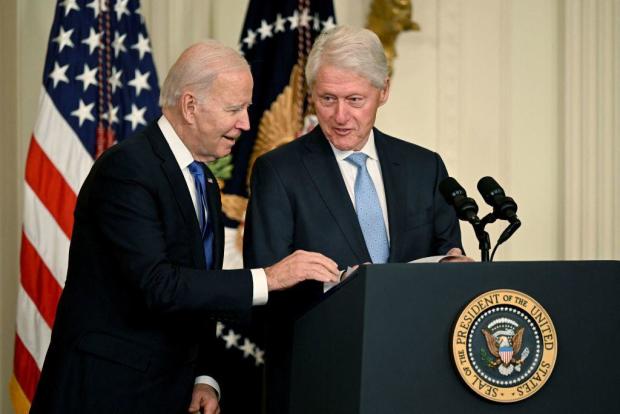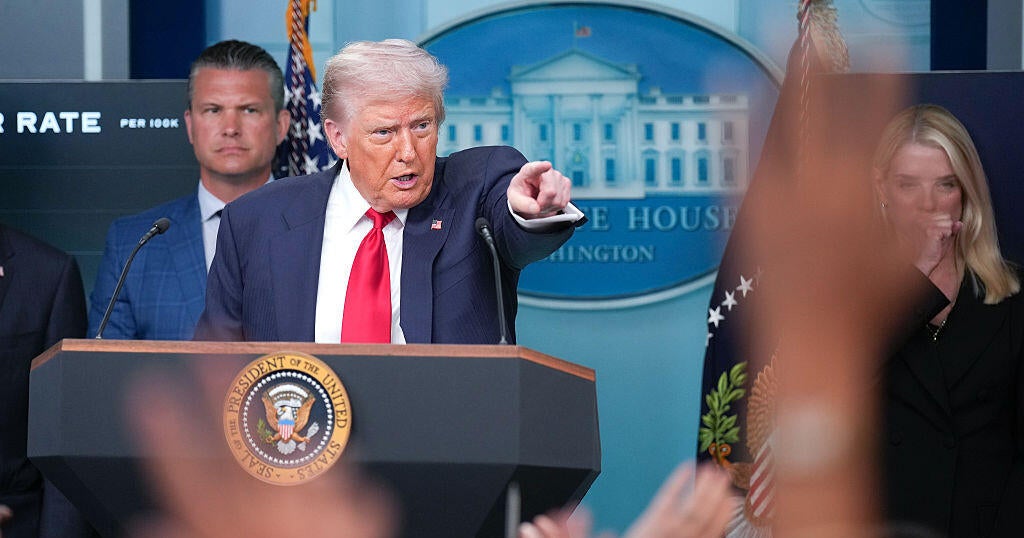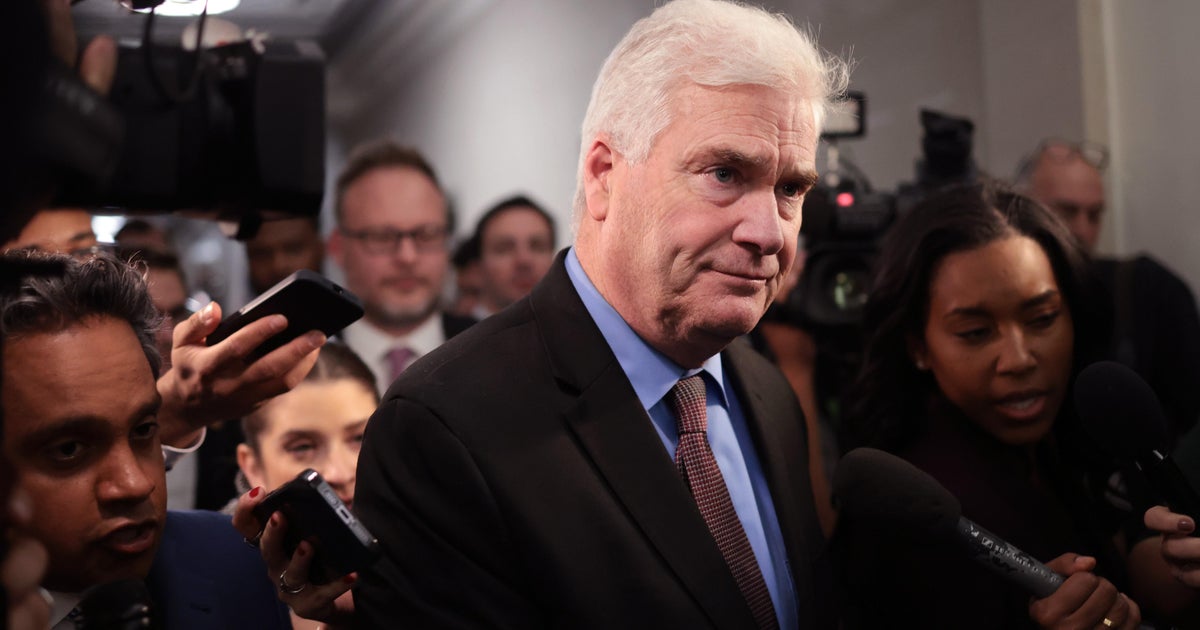Bill Clinton returns to White House to mark 30th anniversary of Family and Medical Leave Act
Washington — President Biden played host to former President Bill Clinton to mark the 30th anniversary of the Family and Medical Leave Act (FMLA), the first piece of legislation that the 42nd president signed into law after taking office in 1993.
In an event Thursday at the White House, Mr. Biden and Clinton put the spotlight on legislation that guaranteed many American workers up to 12 unpaid weeks off to recover from major illness or childbirth or to take care of sick family members. Clinton signed the bill into law on Feb. 5, 1993.
"After all these years, I still have more people mention the Family Leave Act to me than any other specific thing I did. And no one ever talks about what gets all the press coverage — you know, the political process, how long did it take, who got derailed, what went up, what went down. They tell you their story," Clinton said. "That's when you know, for good or ill, that we have united the country."
Clinton recounted his first time on an airplane after leaving office, when a "really compelling flight attendant with a very intense stare" asked if she could speak with him. She told him she would not have been able to support her dying parents without the FMLA.
"'There's no way we could support them with care, except because of the Family and Medical Leave Act. And I just wanted to tell you this,' she said, 'I've heard all these politicians give speeches about family values,'" Clinton recalled. "She said, 'I know how your parents die is an important family value.' It was breathtaking. I never get on a shuttle after 20 years that I don't think about that woman."
Mr. Biden championed but failed to win support for paid leave for workers in 2021. On Thursday, he signed a memorandum that calls on heads of federal agencies to support access to unpaid family and medical leave for federal workers in their first year on the job. Workers aren't entitled to unpaid leave under the law until they've been employed for a year.
"We need more stories. Not process. People need to understand that as great as this was, there's still a lot of people left out," Clinton said.
Mr. Biden also directed the Office of Personnel Management to provide recommendations on developing policies so workers can get paid and unpaid leave to seek safety or recover from domestic violence, dating violence, sexual assault or stalking. Such situations are not covered by the family leave law.
"This event is a moment to recognize the difference that the Family and Medical Leave Act has made and continues to make for millions of Americans," Jen Klein, the White House director of gender policy, said before the White House event. "The president will recognize the work that remains to be done to support workers including by reaffirming this administration's commitment to passing a national paid family and medical leave program."
Early in 2021, Mr. Biden proposed vastly expanding the family leave law to give workers up to 12 weeks of paid parental, family and personal illness leave and to ensure workers get three days of bereavement leave per year as part of a massive $3.5 trillion social spending plan.
His plan called for providing workers up to $4,000 a month, with a minimum of two-thirds of average weekly wages replaced. The White House estimated the program would cost more than $225 billion over a decade.
Paid family leave didn't make it into the slimmed-down climate and health care legislation that Mr. Biden signed into law in August.
A group of Democratic lawmakers have announced they were reintroducing legislation to establish paid family leave and other updates to the law.
But passing legislation to establish paid leave program will be an uphill climb for Mr. Biden with Republicans now in control of the House. Democratic Sen. Kirsten Gillibrand of New York, who has been pushing for updating the federal law, said that she's engaged Republican lawmakers on the issue.
"We are going to find what common ground exists in both the House and Senate and see if there's some measure of paid leave that can be done with the Republican House," she said. "I'm optimistic that there's something we can do together. I just don't know what it is yet."
The current federal leave law doesn't apply to a huge swath of the U.S. work force.
About 44% of workers are not eligible for FMLA-supported leave because they work for small employers exempt from the law, do not work enough hours or have not worked for their employer long enough to be eligible or both, according to the National Partnership for Women & Families, a group advocating for updating the law. Nearly 15 million workers used FMLA in 2022, according to the group.






